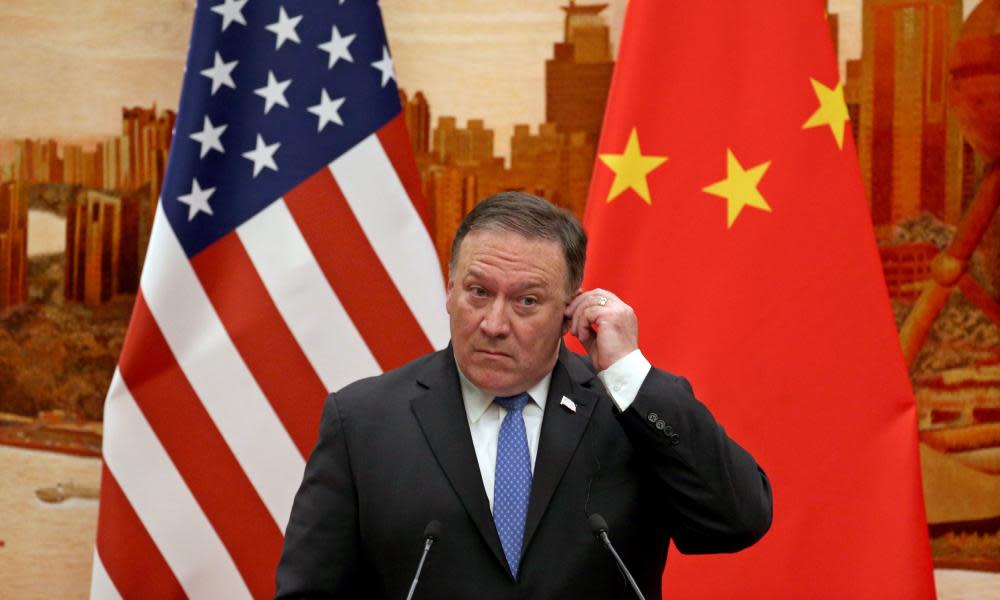US push for global alliance against China hampered by years of 'America first'

The confrontation between the US and China is gathering pace with each passing week. In the past few days, the Chinese consulate in Houston has been shuttered amid allegations it was a spy hub, and the US mission in the south-western city of Chengdu was closed in retaliation, on similar grounds.
The FBI has started arresting Chinese researchers at US universities with suspected links to the People’s Liberation Army (PLA), one of whom temporarily took refuge in the consulate in San Francisco, before surrendering.
US academics and businessmen are being put under greater scrutiny for ties to Beijing and have been warned to come clean about them under the Foreign Agents Registration Act.
The tougher legal moves have been accompanied by a concerted set of speeches assailing China by the Trump administration’s major national security and foreign policy officials, culminating in an address on Thursday by the secretary of state, Mike Pompeo, declaring: “The free world must triumph over this new tyranny.”
Pompeo travelled to Yorba Linda, California, home of the Richard Nixon presidential library, to declare that the Republican president’s historic opening to China in 1972 had begun an exercise in failure in east-west detente.
“The kind of engagement we have been pursuing has not brought the kind of change in China that President Nixon hoped to induce,” Pompeo said. “The truth is that our policies – and those of other free nations – resurrected China’s failing economy, only to see Beijing bite the international hands that fed it.”
Related: Why is Xi Jinping pitting China against the world?
Some of the grand geopolitical language can be put down to the importance of anti-China sentiment in Donald Trump’s bid to salvage his presidency in the November election. And some of it is inspired by Pompeo’s own efforts, increasingly at the expense of his day job, to position himself for a presidential run in 2024.
But much of what Pompeo had to say will have global resonance thanks to Beijing’s rising aggression on multiple fronts around the globe. At the same time as rounding up more than a million Muslim Uighurs in internment camps, the regime has quashed the liberties enjoyed by Hong Kong, taken over disputed atolls, reefs and shoals in the South China Sea and turned them into concrete redoubts, and conducted a dangerous land grab on its border with India.
Pompeo argued that combatting the grip of the Chinese Communist party “is the mission of our time”, a declaration likely to get heads nodding in large parts of Asia and the Pacific at least. But his claim, in his next breath, that “America is perfectly positioned to lead it” will ring hollow among many of Washington’s bewildered allies.
In their eyes, China has expanded in a vacuum left by the US retreat under the Trump administration into “America First” jingoism and unilateralism.

One of Trump’s first foreign policy moves was to pull the US out of negotiations for the Trans Pacific Partnership which was designed as an economic coalition to prevent China being able to dictate the terms of trade in the 21st century. US allies in the region went ahead anyway but it was severely weakened by the absence of the US administration, which sought instead to unpick existing trade arrangements with its partners.
Similarly, the US effort to persuade China to join arms control negotiations would carry more weight on the world stage if the Trump administration had not walked out on three arms control agreements to date and is apparently in the process of jettisoning a fourth, the New Start agreement limiting US and Russian strategic nuclear weapons.
The abrupt US departure from the World Health Organization in the midst of a pandemic, accompanied by a campaign of unsubstantiated allegations against its officials led by Pompeo, is also often cited by diplomats posted to Washington as an example of the US abdicating its global leadership role.
The failure of governance evident in the Trump administration’s response to the coronavirus pandemic, which has left the US as the biggest, most enduring hotspot, and Americans banned from travelling to much of the world, has also made it hard for US diplomats to cajole foreign governments into a common cause against China, without drawing pained smiles.
The same could be said for the spectacle of unidentified and seemingly unaccountable paramilitary units making arrests in Portland. In terms of scale, it could not be more different from the mass incarceration of the Uighurs, but it is not a good look for a nation seeking to reclaim the mantle of leadership of the free world.
It is a stroke of luck for US diplomacy that, at a time when it is at its weakest when trying to recruit allies, China is doing much of the job on its behalf.

 Yahoo News
Yahoo News 
